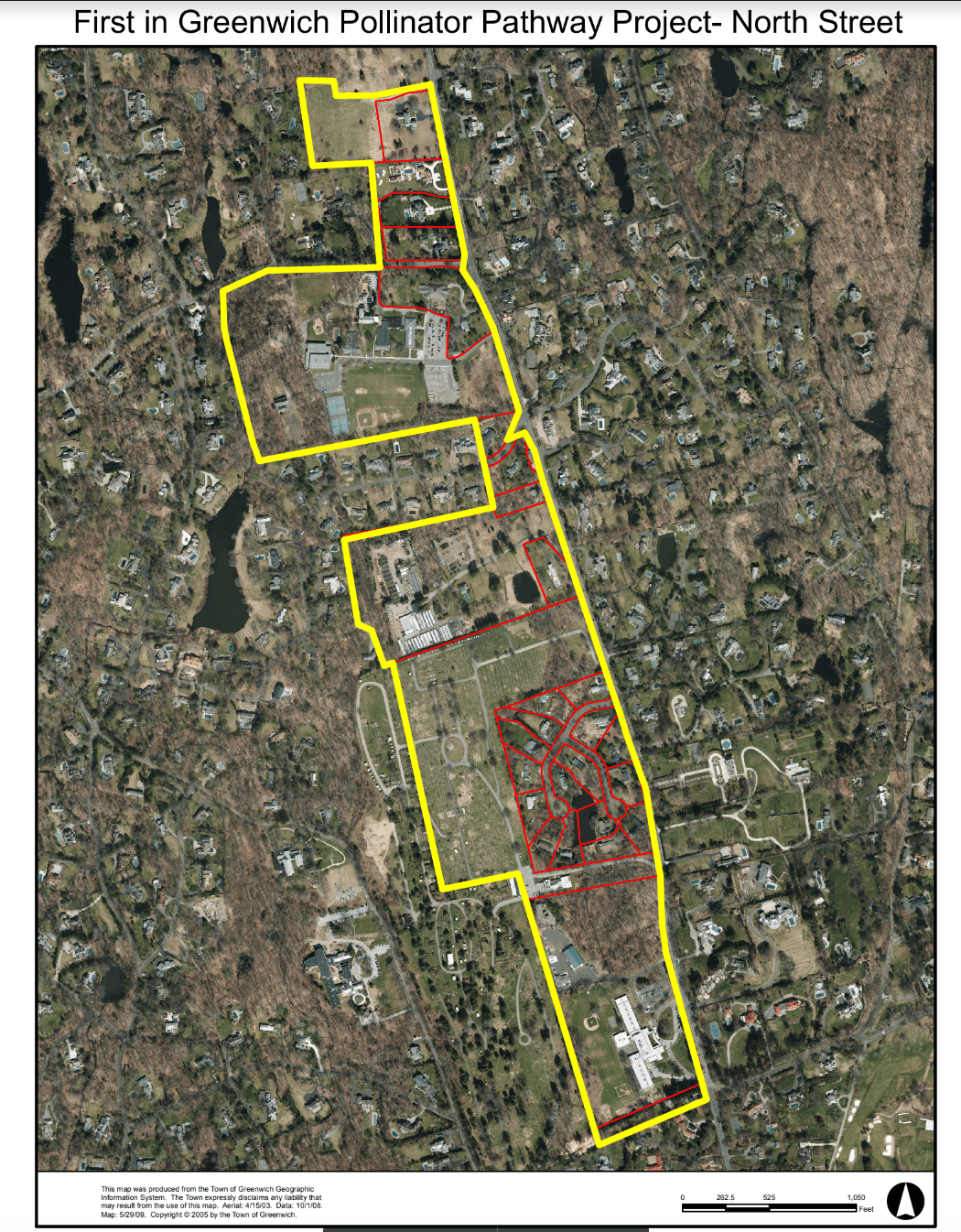At Thursday’s “Pollinator Friendly Gardening 101” event, held at Greenwich Botanical Garden (formerly the Garden Education Center), guests learned how to plant a pollinator friendly garden.
A new program, Greenwich, the Pollinator Pathway, created by the Conservation Commission, Audubon, Greenwich Land Trust, Greenwich Tree Conservancy, Greenwich Botanical Garden, Troy’s Nursery, Sam Bride Nursery and Greenhouse, garden clubs and volunteers, was introduced.
Guest speaker Diane Lampert, from the Greenwich Botanical Garden, said the idea is to connect natural areas by creating pollinator friendly pathways enhanced with native flowers, shrubs and trees creating the feeding grounds for pollinators – bees, bats, birds, butterflies, moths, and other insects.
Ted Gilman, Greenwich Audubon introduced the pollinators, and told the audience of over 50 people what pollinators are.
He said people should care about them as they are in decline as a result of chemicals used in yards, climate change, loss of habitat and diseases.
Pollinators make possible about 1 out of 3 bites of food eaten every day.
Steven Conaway from the Greenwich Land Trust expanded on the elements of the habitat to be included in pollinator friendly gardens.
He said pollinators value is not limited to impacts on food, but also the structure of the vegetative cover, shelter, place to nest and water sources.
Sam Bridge demonstrated how to choose and plant the proper plant material taking all these challenges into account.
He also provided alternatives for traditional grass lawns, including use of plant covers that are low growing, do not need mowing, and provide huge environmental benefits.
The event was moderated by JoAnn Messina of the Greenwich Tree Conservancy.
 “It felt like the crowd was empowered to go home and plan for better yards, yards which would not only benefit the pollinators, but also their pets and children using them,” said Aleksandra Moch an environmental analyst for the Town of Greenwich. “Healthy yards are not only important for wildlife, but also to all of us.”
“It felt like the crowd was empowered to go home and plan for better yards, yards which would not only benefit the pollinators, but also their pets and children using them,” said Aleksandra Moch an environmental analyst for the Town of Greenwich. “Healthy yards are not only important for wildlife, but also to all of us.”
The first mile of Pollinator Pathway in Greenwich was introduced to the audience. The pathway will start at North Street School and run all the way to Greenwich Catholic School.
The group (Pollinator Pathway) reached out to the neighbors and other businesses located along the way (Sam Bridge, Cemetery, both schools and St. Michael’s Church).
The group also offers garden certifications for the properties which meet certain requirements crucial to support a healthy pollinator environment.
Certified properties will be mapped. The mapping will help to determine the highest concentrations of these gardens which will help to make new connections between them and keep growing new pathways.